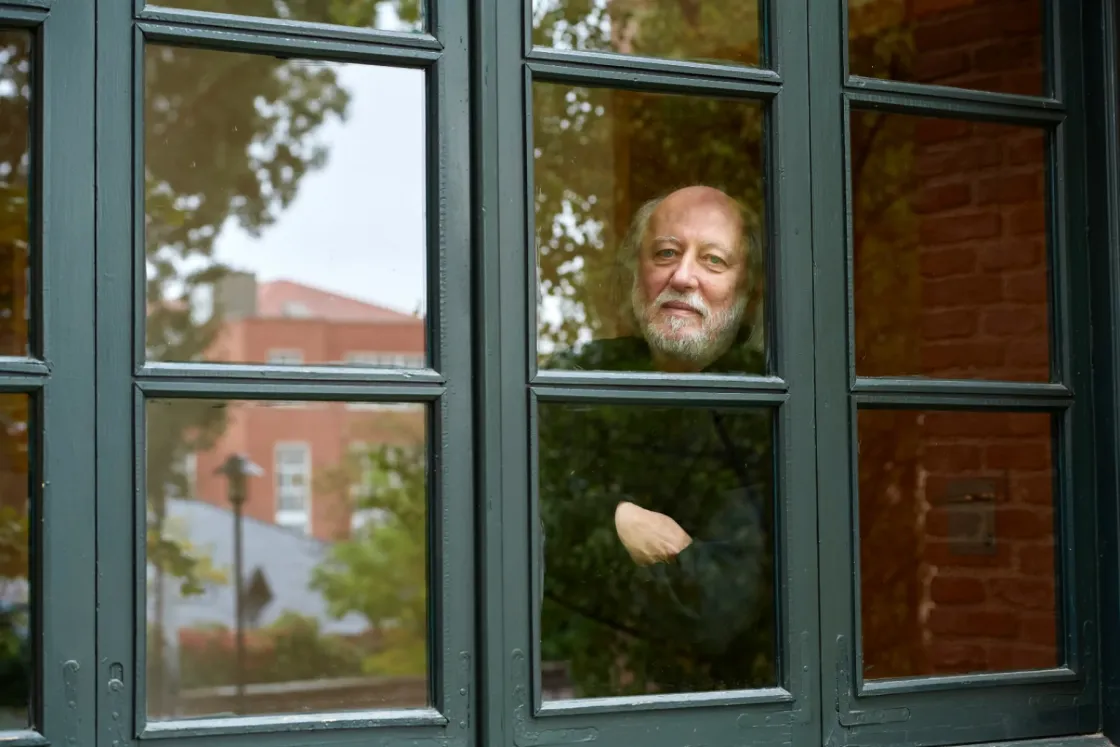
The Royal Swedish Academy of Sciences awarded the Nobel Prize in Literature to Hungarian writer László Krasznahorkai on Thursday. According to the official statement, Krasznahorkai received the award “for his compelling and visionary oeuvre that, in the midst of apocalyptic terror, reaffirms the power of art.”
Born in 1954, the author's first work was published in 1977 in the magazine Mozgó Világ ("The Moving World") in Budapest. Several of his works have been adapted into films by Kossuth Prize-winning film director Béla Tarr.
He has been working as a freelance writer since 1982. The first time he left Hungary was in 1987, when, as a guest of the German higher education exchange program DAAD, he spent a year in West Berlin. He returned to the German capital in 2008 as a visiting professor at Berlin's Freie Universität.
Since the collapse of the Eastern Bloc, Krasznahorkai has been traveling the world and continuously moving around. Outside of Hungary, he has lived in Germany, France, Italy, Greece, and the United States, among others.
He is not only a renowned author at home, in Hungary, but is recognized internationally as well. American writer and film director Susan Sontag called him “the contemporary Hungarian master of apocalypse, reminiscent of Gogol and Melville," while German author Max Sebald—who, after his death, was hailed by literary critics as one of the greatest authors of all time—wrote of Krasznahorkai that "the universality of his vision is akin to that of Gogol, the author of Dead Souls" adding that “he dispels all our doubts about contemporary literature.”
Over the years, Krasznahorkai has won several awards for his work. In 1993, he received the award for best book of the year in Germany for his novel The Melancholy of Resistance, and in 2010, he received the Brücke Berlin Prize for his collection of short stories Seiobo There Below, which was also published in German, along with other works of his. In 2014, he won the America Award in Literature, followed a year later by the International Booker Prize. He was awarded the Austrian State Prize in April 2021, and in 2022 he won the Libri Prize for his short story Herscht 07769.
Several of his works have been made into films, including the 1985 film Satantango, directed by Béla Tarr, a close friend of Krasznahorkai. They also collaborated on Werckmeister Harmonies and the 2011 film The Turin Horse.
Since 1901, a total of 122 people have received the Nobel Prize in Literature, including Hungarian writer and translator Imre Kertész in 2002.
The prizes are traditionally awarded on December 10, the anniversary of the death of Alfred Nobel, who founded the award in 1896. In addition to the certificate and the gold medal, each prize also includes a reward of 11 million Swedish kronen (approximately 390 million forints). The wealthy Swedish industrialist and inventor of dynamite, Alfred Nobel stipulated in his will written in 1895 that the interest on his fortune should be distributed annually to those who have made the greatest contribution to science and literature, as well as to those who have made the greatest effort to promote peace.
For more quick, accurate, and impartial news from and about Hungary, subscribe to the Telex English newsletter!